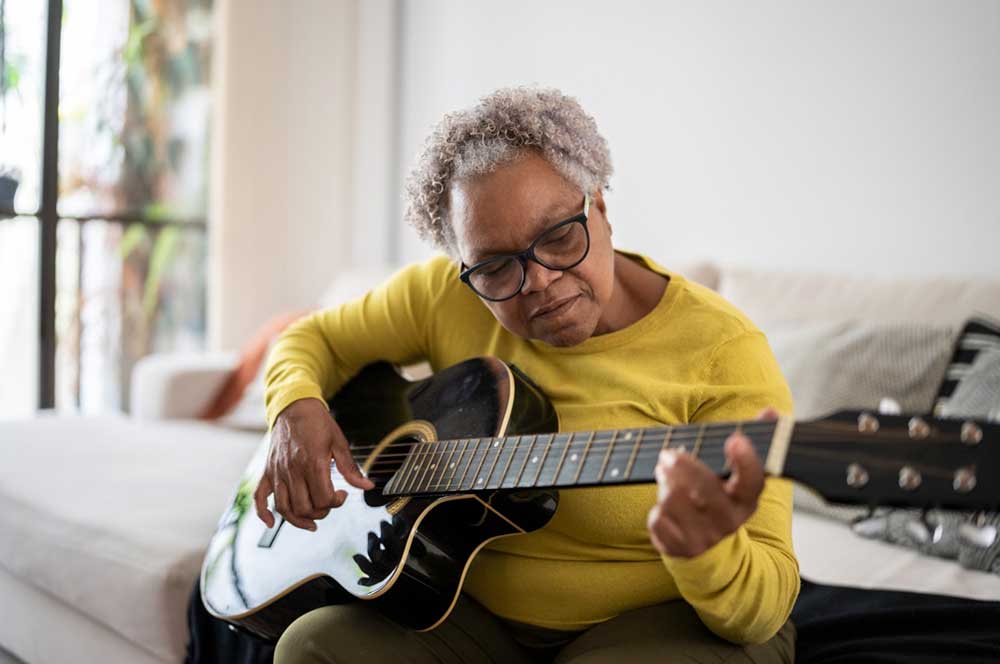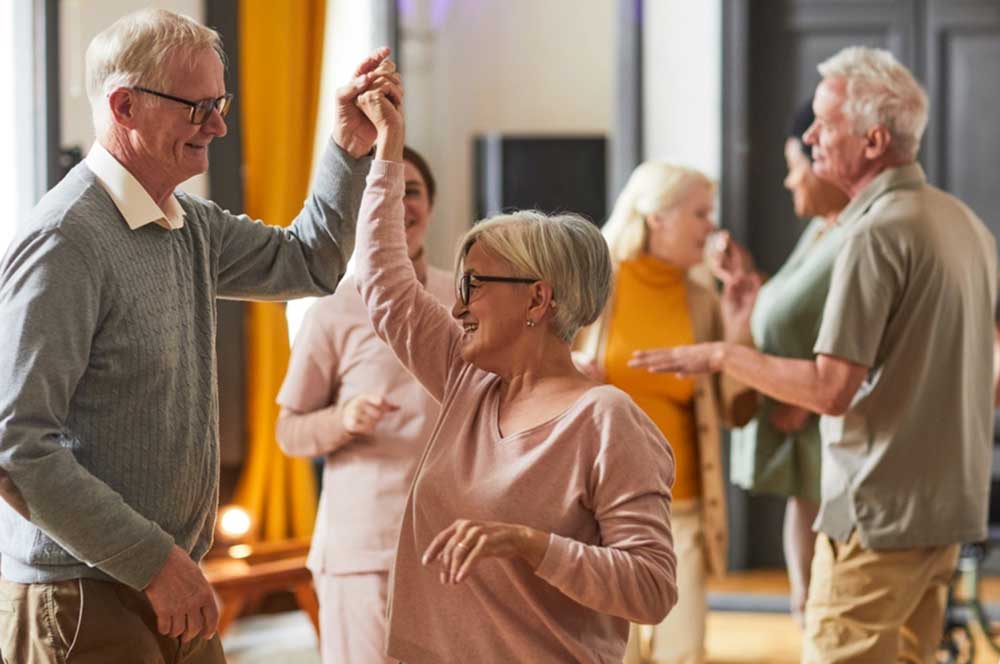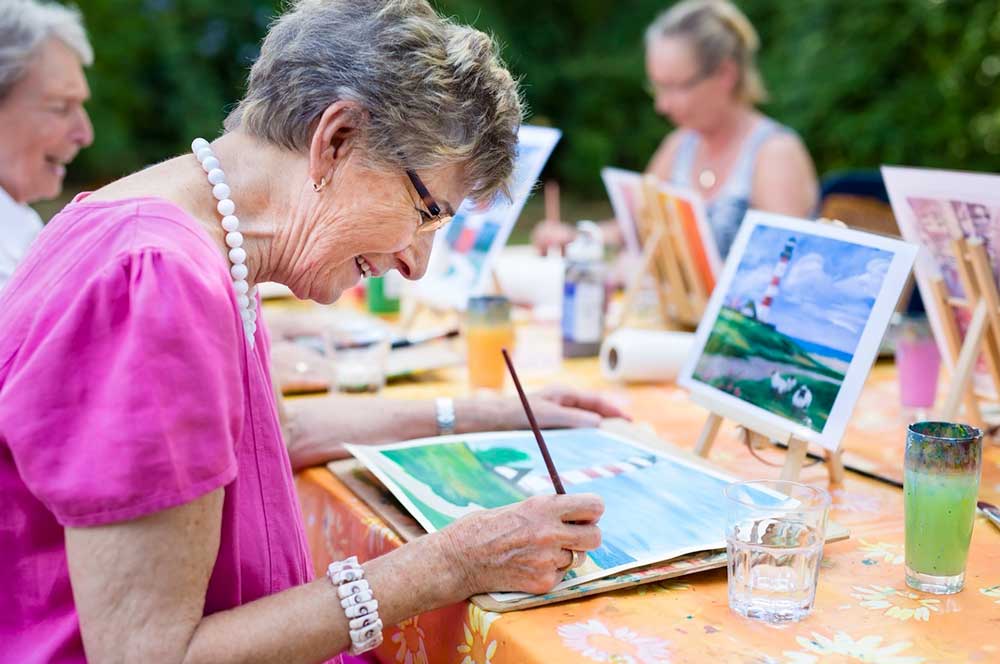You did it! You’ve spent your entire life working towards retirement, and you finally crossed the finish line. Kick off those work shoes and pop the champagne. The golden years have arrived!
As you stand at this exciting juncture, the impending question of “Now what?” might be starting to whisper in your ear.
Should I start volunteering? Redecorate the house? Finally buy that flight to Prague?
While you may have always romanticized the idea of endless free time, retirement can bring feelings of isolation, boredom, and aimlessness. Everyone talks about how great it will be to sit back and relax, but hardly anyone prepares you for the apprehension that comes from not knowing how to spend your days.
If you’re finding yourself in this boat, consider how adopting a new hobby [or reigniting an old one] could improve your overall well-being and provide a renewed sense of fulfillment for you.

While all hobbies offer various advantages, some have been shown to provide significant long-term physical health benefits for older adults. Activities like biking, yoga, and gardening are just a few examples of ones that can improve cardiovascular health and flexibility. Others can enhance brain function and even reduce the risk of Alzheimer’s. One recent study in the journal of Neurology found that mentally stimulating hobbies can postpone the onset of dementia for as long as 5 years.
If you’re looking to adopt a new hobby during retirement, you may want to choose one that has physical and neurological benefits. Here are seven ideas for heart-healthy hobbies that’ll help you stay sharp as a whip!
1. Learning a New Language
Language learning improves brain plasticity to support better memory, problem-solving, and multitasking in the daily lives of older adults. This study found that bilingual seniors experienced delayed development of Alzheimer’s disease symptoms compared to monolingual seniors.
2. Playing Musical Instruments
Learning to play a musical instrument is an especially rewarding hobby that can improve working memory and spatial awareness skills. Seniors who regularly practice their instruments stimulate various regions of the brain that enhance neurological networks needed for creative thinking and motor skills. Plus, who doesn’t love to bond over music? It’s never too late to form that band you’ve always dreamed of!

3. Mindfulness & Meditative Practices
Mindful meditation has gained popularity among older adults for its positive impact on mental/emotional health and stress reducing capabilities. Research shows that meditation can even increase gray matter density in brain regions associated with broadened self-awareness and attention spans. Tai chi, for example, is a gentle movement meditation that’s become increasingly popular in senior communities for its range of health benefits.
4. Dancing
Dance combines physical activity, social engagement, and hand-eye coordination into a single hobby. Practicing dance not only improves flexibility and motor skills, but the memorization of new moves can stimulate brain areas that improve spatial awareness. These combined health benefits of dance make it an especially advantageous hobby to adopt as an older adult. Not to mention, it’s a fantastic way to build community and meet new people throughout retirement.
5. Puzzle Solving
Puzzle-solving is a fun and satisfying way to challenge your brain during golden years. Many older adults look forward to the daily crossword puzzle, viewing it as an opportunity to tap into their wealth of knowledge and memories gained throughout their lifetime. Sudoku and jigsaw puzzles are also great options for mental stimulation. Make puzzle-solving a daily practice in your life, and your brain will thank you later!

6. Racket Sports
Games like tennis, badminton, pickleball and ping pong are particularly supportive for successful aging. From a physiological perspective, they demand quick reactions and precise movements, enhancing reflexes and hand-eye coordination. They also can improve cardiovascular health and balance when practiced regularly over time. Best of all, racket sports are often played in pairs, leaving many opportunities for relationship building that enhances mental health. With so many holistic benefits, you may want to start considering which type of racket suits you best!

7. Creative Art
Activities like drawing, painting, coloring, and sculpting stimulate the brain’s right hemisphere, which is associated with imagination and creativity. Not only can hobbies like these improve cognitive function in older adults, they also create room for self-expression and inspire a deeper sense of personal meaning. Even if you don’t consider yourself an artistic person, adopting some form of creative hobby can improve your quality life in the long run.

Does the idea of trying to learn a new skill at your age make you apprehensive?
Try viewing it as a thrilling adventure; an opportunity to discover new parts of yourself and step out of your comfort zone.
Are you open to discovering something completely new, but simply can’t decide what to try?
Consider activities that intrigued you when you were young, but you never had the time to pursue. Remember, it’s never too late to rediscover old pastimes, dive into new ones, and meet new people while doing it!
Whether you’re spending your retirement years in an independent living community or in the comfort of your own home, hobbies can have a profound impact on your physical, mental, and emotional well-being. There’s no better time to delve into new interests and nurture a brand new passion!
If you are an active senior looking to make the most of your retirement, consider one of St. Paul’s Senior Services’ beautiful independent living communities. We provide comfortable, affordable senior living options in an environment that’s tailored to your active lifestyle. To learn more about our offerings or schedule a visit, email admissions@stpaulseniors.org or call 1-833-STPAULS.